Full Metal Fandom: Why Heavy Metal Inspires Such Devotion
Some say metal is the best music there is. But why do heavy metal bands inspire such devotion among their fans?

Like that fermented shark delicacy that people with giant beards eat in Iceland, heavy metal is not something that you can be persuaded to like. You either love it instinctively or you regard it as a load of juvenile noise. There’s a reason why headbangers talk about metal bands being “for life” and wear T-shirts proclaiming “Birth, School, Metallica, Death,” when you never see anyone with a “Blue-Eyed Soul For Life” bumper sticker, or a beanie cap that says “Give Me British Modern Jazz Or Give Me Death.” Like the Death Star pulling in the Millennium Falcon with a tractor beam made of pure evil, the music sucks you in and never lets you leave.
But why? What’s the big deal?
Total commitment
I fully understand this lack of comprehension, even though I’ve written 20 books on metal bands and literally hundreds of magazine articles on the subject. Until I was 17 I thought metal music was essentially a tragic fantasy vehicle for losers, but then I heard Metallica’s Master Of Puppets, Reign In Blood by Slayer, Megadeth’s Peace Sells… But Who’s Buying? and Among The Living by Anthrax. These albums, plus the obvious mid-to-late 80s thrashers by Exodus, Sepultura, Dark Angel, Death, and so on, transformed my foolish miscomprehension of what metal was about pretty damn quickly.
These weren’t records about slaying dragons or taking drugs, and the musicians never wore spandex – OK, hardly ever. This was violent, inquisitive music that asked serious questions and demanded total commitment. You didn’t listen to Slayer and then forget it in a hurry. The music and lyrics wedged themselves into a corner of your brain and reminded you what real music was, whenever a less commanding sound was being heard.
My reprehensible idea about metal being for losers is embarrassing to recall now, in part because it’s so unsympathetic (I plead youthful stupidity). Metal music is genuinely needed, and here’s why.
A communal experience
Until the late 80s, the metal community was largely male: this is partly because young males tend to bond through a communal experience, the more intense the better. We need to feel part of a tribe bigger than ourselves – and now that warfare is the province of the unfortunate few, there is no communal experience more like tribe-on-tribe combat than the annihilating sights and sounds of a metal gig. Even better, you don’t tend to get killed at a concert… though your neck may suffer the occasional “bangover.”
The appeal of heavy metal is also something to do with the failures of 20th-century fathering, believe it or not. In essence, the idea is that young men crave the attention and approval of their male elders. The direct consequence of two generations of war-numbed dads failing to give their sons the masculine comfort they needed was the rise of heavy music. Those sons were obliged to turn towards metal bands to get their dose of masculine bonding.
Sure, this is an untested theory, academically at least – but you head to any metal show and try to claim that the guys in the audience aren’t experiencing a shared, almost familial experience in the mosh pit. Why else would modern headbangers’ etiquette be that if a brother goes down, trampled underfoot, you help him up?
A wider, deeper place
But this is not just about the primal needs of the male species – far from it. In fact, metal hasn’t been a testosterone-only scene since around 1990 (thank our Lord Below). The addition of our sisters and daughters to the experience benefits us all. The music is a wider, deeper place to inhabit, and the emotional range greater – and thus more human.
There’s a groove and swing to music by Rob Zombie which there has never been with Iron Maiden, and a sexual and political edge to Rammstein’s songs that you’d never get with Def Leppard. The times they are definitely a changin’, but the most important things in life never change – and, by the beard of Zeus, metal today is as immersive and as all-encompassing as it ever was.
Talking of changing times, non-disciples often get confused about the ever-evolving face of metal, not helped by journalists’ tendency to label subgenres of diminishing size. You may remember Jonathan Ross, on his TV show, mockingly asking Marilyn Manson whether he was a death metal singer. The idea is laughable for anyone familiar with Cannibal Corpse, Deicide, Morbid Angel, or any of the original death metal pioneers. (Props to Manson: he replied to Ross’ idiot question with the words, “We’re just a rock band,” the correct – and, indeed, only – answer.)
You can understand Ross’ confusion – or rather that of his researcher. “Death metal” is a scary, but seductive, term because it has the word “death” in it. Whoo! You don’t get that with R&B or grime or funk. The same goes for black metal, which is a Satanic variant of the old sound; or doom metal, which is a slowed-down, crushingly heavy subgenre. These are spooky terms. Of course, it takes a certain amount of courage, or psychological need, to explore what they mean – and to appreciate the intimidating beauty of the music.
A thing of beauty
And make no mistake, this music is a thing of beauty. Get your headphones on and explore the sonic landscapes of the mind opened to you by Opeth, Tool, Mastodon, or Darkthrone. Violence and serenity can co-exist, and do so in the works of all the metal bands mentioned here. You just need the strength to investigate them.
All this should help to explain why metal matters so much. This isn’t just entertainment. Metal transcends ridicule, despite its vivid, sometimes garish imagery: you’ll see men and women in their 60s wearing Black Sabbath shirts at gigs. Metal is bigger than any drug: note how adherents of a stimulant-free straight-edged lifestyle love the music for its ability to unleash the brain’s happy hormones.
Metal is brave, metal is funny, metal is honest. At its best, metal is the best music there is.





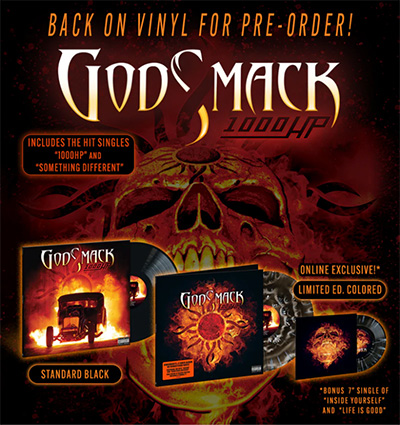
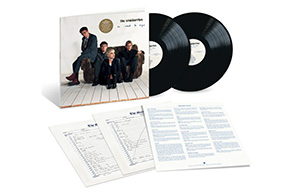

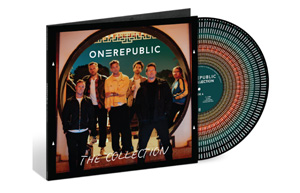



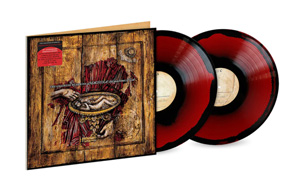
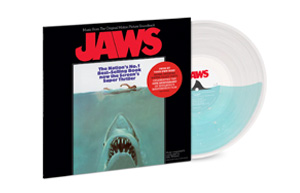
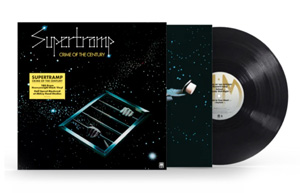
Michael
March 17, 2017 at 4:11 am
I disagree with the lack of groove and swing in Iron Maiden. Maybe not of Kate , but the earlier albums had it in spades.
Steven
April 1, 2018 at 5:50 pm
Thanks to Clive!
Scott
May 7, 2017 at 11:06 pm
Perhaps a testimonial from a long time fan can spread the word in more permanent fashion. Why, at 56, am I sitting here at a keyboard listening to Yob when the majority of my peers seldom venture past classic rock cliches? What is it in metal that has kept me interested, kept my love of that style strong and get as much if not more out of it than when I was a lonely bullied high schooler who loved KISS, that band helping me turn to more hard music, and in the mid-1970-s, camp as they sound now, KISS was heavy – very heavy. Maybe only Black Sabbath or Led Zeppelin amongst us students in a rural redneck southern town were considered much tougher.
KISS were there for me in times of depression, fear, and isolation. Other fans bonded and the constant discovering of new bands and music was a lifestyle that one could share with some kids amongst them one who is my best friend for life, and we are only limited from being blood brothers by DNA. It’s that common sense of bonding that metal has that most other genres don’t, maybe except for punk rockers.
What makes metal stay popular is not just fashion or conformity with others of one’s peer group: it is the one place where the spirit of real rock and roll music has its home. When musicians of decades ago played or recorded, often it was under potentially dangerous conditions. Example: black artists could only record 78’s for black labels and black audiences. Ragtime, the immediate genre before jazz, had elements of what would define rock and roll half a century later – relatively lively tempos, a pronounced beat, danceability, and hooks. Thanks to Scott Joplin in particular, ragtime spread to white audiences as well. Jazz followed, and white performers and audiences especially in the ’20’s loved its basic hedonistic wild style. Giants like Louis Armstrong, Jelly Roll Morton, and Duke Ellington brought the improvisational element to the mix, the beats got bigger, and while audiences were pretty much still segregated, there was crossover appeal.
Blues, from the Delta days especially was a struggle in itself as those lucky enough to record like Blind Lemon Jefferson, who actually made money for a while, Son House, Charley Patton, Robert Johnson, the list goes on and on, were the music along with some country and gospel of the deep rural South, the struggles, poverty, racism and hardships that blues artists excelled in putting to music. It was shunned of course by white audiences, and through the 40’s, only a relatively few blacks got national attention outside their own black fans. Charlie Christian practically invented bebop jazz in his recordings with Benny Goodman, who was a pioneer in having mixed combos and his orchestra. Louis Jordan was a huge seller especially during WWII, T-Bone Walker was thrilling fans with his flamboyant blues that along with Muddy Waters was a very big step toward rock and roll.
This rebellion against the odds was transferred eventually to the teen audience in the 1950’s as they truly began to separate themselves from the music of their parents. With the exception of only the biggest African American names, like Nat King Cole, The Platters or Mills Brothers, it was horrifying for white parents to see their kids digging music of African Americans. The rebellion was on.
As we know, the ’60’s were the watershed moment, where all bets were off. That attitude could have died once the ’70’s took hold and more parents were listening to rock, at least some of the softer stuff. Punk came to the rescue, then hardcore, and finally, metal. While there are those who like metal just because of its rebellious or peer pleasing properties, long time fans like myself just like the spirit, innovativeness, technical brilliance or even almost terrible playing if the heart is in the right place, and just feel stronger and rejuvenated. Being a guitarist helps, too. Rock and roll was never intended to be weak, intimidated or suitable for a daycare center. Lemmy Kilmister said it best: “If you think you’re too old to rock and roll, then you probably are.”.
Darth
March 5, 2018 at 2:23 pm
Metal head forever!!!!
Living the fucking dream
Steve armstrong
March 5, 2018 at 5:49 pm
AMEN brother.
Stephen Wilkinson
March 6, 2019 at 6:15 am
What the hell is wrong with songs about dragons? Is Ronnie James Dio, the man who is credited with the “devil horns”, not metal enough
Metal started a long time before the bands you are citing and some of the bands that did help create it and where major influences to the bands you mention, you seem to be slagging off in your article.
There is far more to the metal scene these days than death and black metal, check out many of the bands who are coming up through the New Wave Of Classic Rock (which isn’t just “classic” rock) such as Baleful Creed, inglorious, King Creature, Those Damn Crows, Departed, Feverhawk, Greta Van Fleet, King King, Massive Wagons, Seven More Days, Swamp Born Assassins, Wild Heat, The Van Desh, Riders to Ruin, Samarkind etc. etc.
S
June 10, 2019 at 1:51 am
Straightedge metalheads? I didn’t know that was a thing.